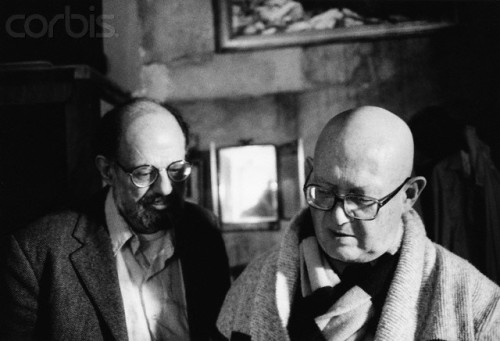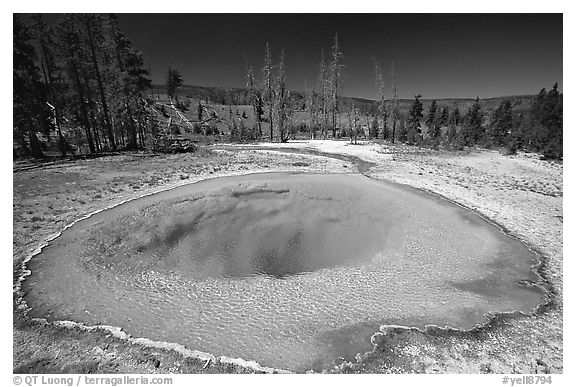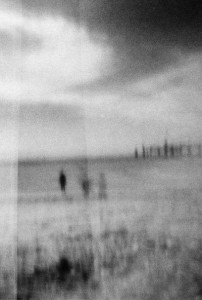(7 Day Intensive at Centre of Gravity, 180 Sudbury Street, Toronto, Spring, 2011. Talks by Michael Stone, notes by MH (with errancies, mishearings, conjectures.) This is talk 5 of 8 on Dogen’s text Time is Passing), written in 13th century Japan.)
I can’t live in this world
And I refuse to kill myself
Or let you kill me
The dill plant lives, the airplane
My alarm clock, this ink
I won’t go away
I shall be myself—
Free, a genius, an embarrassment
Like the Indian, the buffalo
Like Yellowstone National Park
– Philip Whalen
Dharma Bum
Philip Whalen (20 October 1923 – 26 June 2002) was an American poet, Zen Buddhist, and a key figure in the San Francisco Renaissance, and one of the Beats. He is named Warren Coughlin in Jack Kerouac’s The Dharma Bums. Every movement has someone in it who doesn’t get famous – Philip Whalen was that man. But his life and work inspired so many poets. Whalen spent 1966 and 1967 in Kyoto, Japan, assisted by a grant from the American Academy of Arts and Letters and a job teaching English. There, he practiced zazen daily, and wrote some forty poems and a second novel. He moved into the San Francisco Zen Center and became a student of Zentatsu Richard Baker in 1972. The following year, he became a monk. He became head monk of Dharma Sangha, in Santa Fe, New Mexico in 1984. In 1987, he received transmission from Baker, and in 1991, he returned to San Francisco to lead the Hartford Street Zen Center until forced by ill health to retire.
He owned almost nothing but used books.
Pilgrimage
Two years ago I went to see where Philip Whalen lived (and died, a decade ago) on Hartford Street in San Francisco. I was invited to go up to his room which remains as if he was still living there, all his books are still there, and inside them are photographs by Allan Ginsberg, and postcards and notations. It’s was such a beautiful archive.

Self Form
Can you be Yellowstone National Park today? I think often in our practice we want to escape our lives, we want to make the self disappear. But halfway through Whalen’s poem he makes a shift. The dill plant is living. What if I can live like a dill plant, like an airplane? Perhaps I can be like an Indian – who is part of an indigenous culture that authorities try to deny, try to make invisible, to sequester into reservations. How are these thoughts connected to Dogen’s Uji, The Time Being? We go around as ordinary people and move through the world but actually we’re spectacular Buddhas and maybe we’re frightened by how spectacular we are, or our eccentricities. What is the goal of yoga? Perhaps it is eccentricity, fully inhabiting our svarupe, our self form. As practice develops we can become more and more ourselves, even as we embody emptiness and interdependence. No one needs to be like someone else. It would dampen the treasure. We need Jess to be fully Jess, and also we need her to be part of the group. We need Lori to be fully Lori and also we need her to be part of the group. Yellowstone National Park isn’t trying to be Algonquin Park.
How much time does it take to be here, in this instant? It’s not enlightenment, it’s practice-enlightenment.
If we’re already awake, then why practice? You practice because you’re already enlightened and therefore you live ethically. We don’t steal because we’re interdependent. Harming you would be like harming myself. I look after myself by looking after you. You don’t practice yamas to get to Samadhi. You practice Samadhi to express the yamas.
Even when you’re in shame, you’re beautiful. Being yourself is being a Buddha. And being a Buddha can only happen for the time being. The Buddha is never coming back but that’s OK because you’re here. You are doing good work when you can hold these tensions and pressures lightly. When you’re an angry little girl you need a little more practice so that you can be an angry Buddha instead.

Lungs
Time also touches you lightly, well, at least sometimes. It touches the alveoli, tiny air sacks in the lungs that are shaped like broccoli, swapping oxygen and carbon dioxide. Think of millions of tiny balloons filling and emptying. The ability to feel the gentleness of this process – that we’re breathing each other’s air, that your exhale is my inhale. And that the little lungs of birds and squirrels are also breathing us. Our practice reverberates, as they say in Victoria it sends a vibe.
Animal Time
In middle ages China they didn’t measure time in hours but according to what animals are awake. The hour of midnight was the hour of the rat, 4am: tiger, 8am dragon (or snake), 12noon horse, 10 pm bear. Animals were also used to indicate directions: rat indicated north, a horse, south.
Even if you could explain time it wouldn’t help you. The time being is beyond naming and conceptualization. Gregory Bateson: “The map is not the territory.” Just like you, every being creates conditions that you can’t be without. In a community if you can’t be yourself it impacts every node in the whole web. Every other condition flows, without their life your life would not flow like this. Dogen says: Just study this. You pick up one thing and look at the conditions that arose around it. When you’re caught up in your addictions and habits you’re exhausting yourself and everything else.
Doubt as inquiry, or doubt as mood? Perhaps doubt is like lunch. You don’t always have lunch, you don’t need to keep eating lunch. Don’t always doubt. Have lunch.
Everything is flowing but it’s not flowing towards something. It’s not trying to get somewhere, it is the somewhere. What flows towards is also flowing. And then you can be yourself, like Yellowstone National Park which cares so little whether it’s spring or summer or fall.

Anniversary
Sometimes I would wake up in a certain mood – angry, filled with anxiety, or sad – and then realize it’s an anniversary – it was 20 years ago today that my father died. These anniversaries, these markings of time, these memorials, are stored in the body. Time released.
Yoga Sutra
The Yoga Sutra was written 500 years after the death of the Buddha. It begins: “Now is the practice of yoga.” The whole practice is in this moment. For the time being. The first line in this text is atha yogah nusasanam. The word atha literally means now. It’s actually quite an interesting word to begin the seminal text on yoga. That now or present experience is what starts off this text. Most people translate Patanjali’s opening line this way: now we’re going to study yoga. If you picked a philosophy book off the shelf and thumbed through the foreword you might see lines that look like this. Forecasts of what is to come, along with a general outline, a survey of the outlying text fields that are waiting. But this translation misses out on how the book lives in the hands of someone who practices. For us, this line might read instead: Now is the teaching of yoga. We’re not going to begin to study yoga, instead, all of yoga is contained in this moment of present experience.
The teacher is present experience. This opening suggests that there is no guru, and that Patanjali is not a sage who is going to impart ancient wisdoms to you. We’re not prostrating, or having to adopt a belief system. Instead, we’re being told that present experience is really the core teaching of yoga. What a relief. The problem is that most of us forget. We forget about the moment to moment flow of life because we’re so caught up in our ideas of how things should run, and how everybody else should act. We’re filled with what Patanjali calls pratyaya, which are “presented ideas.” Today we might use the term “core beliefs,” which makes them sound so static, as if they’re cemented into our foundation stones. For Patanjali, our core beliefs are momentary and contingent, they float up into awareness and pass away. They’re not fixtures, or static parts of your personality.

Yoga Is
In the second sentence he offers his definition of yoga. Yogah citta vritti nirodhah. The word Yoga gives us the English word yoke. It means to bring something together, or to unite. But once the word slides away from its action figure verb form and becomes “Yoga,” it’s not about the action of yoking anymore. Yoga doesn’t mean to unite. Though it’s become a commonplace, whether scratched into the bathroom stalls of Yoga emporiums or else whispered in the post-graffiti hideaways where people who will never suffer hair loss gather to sip mysterious cocktails that grant their surface an ageless reflective shine. The most usual definition of Yoga says that it’s about uniting the breath and the mind, the soul and God, the peanut butter and the jelly. But yoga means waking up to the way everything is already united, already interdependent. I like to translate the word yoga as intimacy, because the felt experience of yoga is being connected. And whether you define that as feeling connected with something in yourself, or with the natural world, or with someone else, these are all fragmented ways of talking about intimacy. I think Yoga refers to a basic kind of intimacy, the way things are connected before our minds divvies up experience into me and you. If you lose your watch, it’s a shrug and a nod. But if I lose my watch, it’s the four horseman of my personal apocalypse now, it’s the last straw, the final frontier, I’ll never hold time again.
Vyaas Huston is one of the finest Sanskrit teachers in the west, and he taught me that when any word in a sentence has the same ending as the last word, they mean the same thing. The shared ending creates an equal sign between these two words. Isn’t that the coolest rule? In Patanjali’s second line Yogah and nirodhah have the same ending, so you could actually translate this sentence as: Yoga is nirodha. Yoga, which we’re defining as intimacy, is nirodha.

Nirodha
So what is nirodha? Well, Raudah is the goddess of storms. Have you ever watched The Weather Channel? It’s the best channel on the dial. I had a phase where I liked to watch televangelists with the sound off, I loved to see their lips move as they sold remnants of the true cross. There was a whole generation of actors that were left behind when movies acquired sound; silent era heroes with faces that could break hearts just by the way they sent their eyelashes fluttering as they looked into a slowly closing door. The Jesus hucksters have inherited some of their animal poise, but whenever I got tired of seeing those soundless faces I’d switch right on over to The Weather Channel, which I became convinced would show me the day’s forthcoming events. Here were my internal weather patterns, laid out in weekly grids of mood and happiness. And what I liked to see most of all on this station was the weather porn, preferably storms. Even a flash flood would do, though I preferred bi-coastal twisters, mid-Atlantic swells, the swept up feeling that the rain was falling on everyone equally, and at the same time. Perhaps I was already edging closer to my own nirodha. Ni means to go into, and Raudah is the goddess of storms. What does it mean to enter the goddess of storms?
The centre of any storm is a place of uncommon stillness, and not only is it quiet and easy, but the way a storm pattern releases itself back to calmness is from its centre. The quietude pushes against the inside walls of the spinning storm, and gradually the entire system releases. Raudah is where we get the word radish, or radical, which literally means to get to the bottom of something. Nirodha means going down into the roots of something in order to release it. Someone who is radical gets to the roots of experience.
What’s obscuring intimacy in our relational lives, and in our own minds, is the citta vrittis. The word vritti means to whirl. For those of you who practice Yoga postures, any pose that has the word vritti in it means that you take the position and revolve it. Utthita Trikonasana is the extended triangle posture. Parivritta trikonasa is the same pose revolved. The revolutionized triangle.

Citta
Citta is such a complicated word. Let’s say for now that the word citta means consciousness, OK? There are six different kinds of consciousness. When the ear organ meets a sound, you get ear consciousness. When the nose organ meets a scent, you have a moment of temporary nose consciousness. And when the mind meets a thought you get mind consciousness. Western philosophy describes only one kind of consciousness, and suggests that because we have it, the mind has thoughts, and the nose smells. In Patanjali’s model consciousness is not steady and reliable, it comes and goes, it fluctuates. Vrrti means turning or revolutions, you could think of them as blips in consciousness.
Sometimes during sitting meditation, when you try to stay with the feeling of breathing, your mind is busy filling itself up with the most beautiful passages in the English language. Not to mention laundry lists, must buys at the local Supersave, have I taken the dog out for a walk, the psychological post-it notes that fill up every waking moment. These distracting asides are the citta vrittis. Sometimes I translate citta vrtti as the elaborations of the imagination, but this doesn’t capture the sense that they’re not just happening in your mind, there’s fluctuations occurring in all your sense organs.
If you want a working definition of the ego for the meditator, the ego is the illusion of separateness – not just relationally, but in ourselves. When we turn our pain into an object we create the illusion of separateness. Or if you disown certain parts of yourself (that ugly nose doesn’t belong on my beautiful face) or deny certain patterns that you can’t include in your life. These strategies can be helpful, but they’re only helpful temporarily. Sometimes, 20 years after you create a strategy of getting rid of something, you’re still trying to get rid of it. That’s a lot of energetic expenditure. So the second line of The Yoga Sutra reads: Yogah citta vritti nirodhah. Yoga is the cessation of our misidentification with the movements of consciousness.

Self Form
The third line goes like this: tada drastuh svarupe avasthanam. Some of you might know this already, but in the 17th and 18th century in Europe, magicians and street performers would use Sanskrit words in their performances to make them more exotic, and this is one of them. So tada actually means ‘ta-da!’ Drastuh is the seer, the one who sees. Though this doesn’t mean seeing with the eyes, the seer refers to your whole mind-body, and this relates to the word that some of you know, dharshan, which is philosophy. In India, they didn’t really have the term philosophy, they called it dharshan, which is about a way of seeing. Philosophy is learning how to see something. Sva means self, rupe is form and avasthanam means abides. The dude abides. That is so Jeff Bridges. The line reads: Then the self can abide in its very nature. I love this line. When you do not misidentify, when you don’t identify with everything that comes through your mind, then you can be yourself. Don’t you love the recipe? I mean, usually we think of this practice as leading us to a place where you no longer identify with things, and then you leave this world and this body and you get a better life and you don’t ever have gas again. But what Patanjali is saying is that when you don’t continually become attached, or try to get away from what’s showing up in your life, then you actually abide in your nature. And not just in nature, but in your particular nature. So that actually, citta is quite personal. The patterns of your mind and body are very unique and there’s great value there. You don’t wriggle out of your subjectivity, you actually abide in your nature, in your gender, in your life as you are. Not in the self you think you are, but who you are when you forget about your self.
When we forget about ourselves, intimacy arises. Mahayana Buddhism says that the goal of our practice is compassion, but Patanjali doesn’t really speak that way. For her, compassion or love is the byproduct of intimacy. We’re not cultivating love, love is a totally impersonal energy that shows up when we’re being ourselves. And you know that, don’t you? When you’re relaxed in yourself, when you’re not trying to take care of other people, when you’re not trying to promote who you think you should be, when you’re not trying to feed your feelings of discontent and lack and incompleteness, then you can be yourself, and there’s friendliness and kindness. Then you can be an oddball and move to Parkdale.

Patanjali urges us towards this fundamental realization: that I am not locked inside this body, I’m not back here looking out at you. “I” am the contingency of the experience of this particular moment, and the way that we create this moment together. But there is no actual me, I don’t exist as a discrete object. We are not things, like ice cubes banging into each other in a glass, we’re experiences that are coming together and coming apart. Myself and yourself is something that happens between us, there is no removed private self over here that’s having its own exclusive experience.
Olympic Judge
Being in stillness and practicing Yoga postures and sitting in meditation is part of being human. And another part is expressing ourselves. When you’re not clinging to who you think you are, then your expression of yourself, your art, becomes flow. There’s nothing worse than seeing a performer who can’t get out of the way of their own performance. And there’s nothing more enjoyable than “losing yourself.” You’re watching a show at the film festival and then you forget about it and it’s just happening. And for those of you who are professional filmmakers or writers or musicians, you know there’s a phase you go through in your career where the musician can’t hear other peoples’ music because they just sit and critique it. And the filmmaker can’t enjoy film anymore because they’re just sitting there critiquing it. And the same thing happens in our relationships. When we’re too identified with how we think others should behave, when we can’t stop hearing our own expectations, then we can’t enjoy the other person anymore. You can hit a point where this Olympic judge shows up and you open the door to them, and from that moment on you can’t stop weighing and deciding and evaluating everything your partner does, so that even when they’re telling you the dreaded family secret all you can think about is, “I shouldn’t be with someone who has a secret like this.” You’re not really there with them, you’re too busy holding up the large sign with the number on it. The sex was a seven, and the after sex talk was five. Sleep is a ten.
Dogen
To study the way is to study the self
To study the self is to forget the self
To forget the self is to be touched by 10,000 things
What is the purpose of this practice? To be free. To be ourselves. To be Yellowstone National Park. Not a persona or a position. When we’re free in each moment we can respond to the flow of conditions. The self is an elastic construction – we are different people around different people. If you follow your own conditions deeper and deeper you end up with butterflies.
Can you allow the salt water of your tears to flow? Can you allow the joy to flow?

